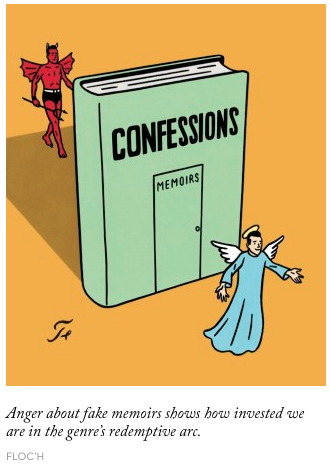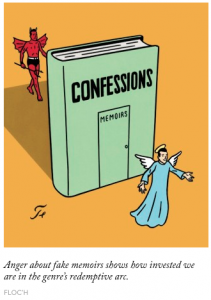After watching documentaries or reading non-fiction novels or biographies or autographies, I think it is always interesting to consider the levels of mediation that exist in any attempt to still time and to document a particular moment in the expanse of our lives. In director Sarah Polley’s documentary film, Stories We Tell, she takes viewers through the unravelling of a personal family secret. Through a series of interviews, footages from family home videos, and the reconstruction of certain memories, she, in a sense, recreates history. However, the documentary format, with individual holding cameras and the b-roll footages constantly establish both a distance and serve as a reminder that the video itself is being mediated by the documenter.
Interestingly enough, with the availability of social media and the Internet, I often read reviews of a movie before spending close to two hours watching the movie itself. What I end up doing with a documentary film is read a review on a person’s review of their own life. The complexity is stated in that sentence itself. In a review by Nicole Sperling in the LA Times, she references explanations by Polley regarding the choices that she made as a documentarian. Polley reveals that she was making a movie about storytelling and part of the premise of the movie was to “not pretend that this was some factual thing, that this was as close to the truth as we could possibly get with a million different versions — and one of those versions [was] this film” (Link to statement here). Despite the fact that she tried to get everyone’s perspective into the film, giving each of their voices equal weight, she cannot escape the fact that each voice was mediated in some way. This is represented in the framing of the scenes in which there is always the sense that there is a camera. Oftentimes, the viewer sees the video of a video being filmed. Reviews of these sorts also contribute to the uncovering of the ‘truth.’ John Buchan, Sarah’s Polley older brother is a casting director himself who worked collaboratively with Polley to cast people who would recreate the scenes narrated by Michael Polley, their father. In that same article, Buchan talks about how when he was casting himself at age 18, he made sure that he got something “who was way better-looking…because [he] like[s] the idea of rewriting history.” Related to this, Buchan references how the scenes recreated and the actual home videos melded together in a way that a couple of times, even Buchan could not tell the difference himself between which was the ‘real,’ and ‘authentic’ footage as opposed to one that was recreated. In the end, Polley is apt to call this work a story and her father and all others involved “storytellers” as stated in the closing credits. They recognize the fact that this is an act of reconstruction and inherently flawed in that sense but the alternative seems to be to not to document or to document only one voice.
In also thinking about WHY to document, Polley says in an interview with Studio Q
https://www.youtube.com/watch?v=fqBe1DSY1Vc
that some journalist had found out about this family secret before most of her immediate did and was planning on posting it. In a sense, I think she wanted to preserve the right to tell her story just as Harry Gulkin felt adamantly in the film that he was the only one who had the right to tell the story. All in all, documentaries raise ethical questions of how to document and who has the right to document.

